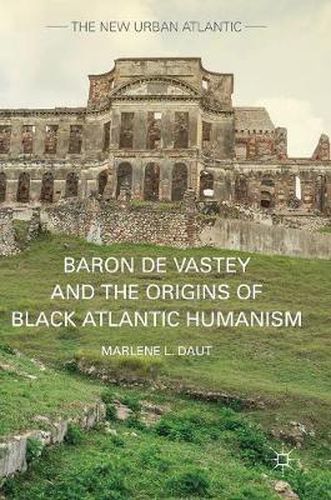Readings Newsletter
Become a Readings Member to make your shopping experience even easier.
Sign in or sign up for free!
You’re not far away from qualifying for FREE standard shipping within Australia
You’ve qualified for FREE standard shipping within Australia
The cart is loading…






Focusing on the influential life and works of the Haitian political writer and statesman, Baron de Vastey (1781-1820), in this book Marlene L. Daut examines the legacy of Vastey’s extensive writings as a form of what she calls black Atlantic humanism, a discourse devoted to attacking the enlightenment foundations of colonialism. Daut argues that Vastey, the most important secretary of Haiti’s King Henry Christophe, was a pioneer in a tradition of deconstructing colonial racism and colonial slavery that is much more closely associated with twentieth-century writers like W.E.B. Du Bois, Frantz Fanon, and Aime Cesaire. By expertly forging exciting new historical and theoretical connections among Vastey and these later twentieth-century writers, as well as eighteenth- and nineteenth-century black Atlantic authors, such as Phillis Wheatley, Olaudah Equiano, William Wells Brown, and Harriet Jacobs, Daut proves that any understanding of the genesis of Afro-diasporic thought must include Haiti’s Baron de Vastey.
$9.00 standard shipping within Australia
FREE standard shipping within Australia for orders over $100.00
Express & International shipping calculated at checkout
Focusing on the influential life and works of the Haitian political writer and statesman, Baron de Vastey (1781-1820), in this book Marlene L. Daut examines the legacy of Vastey’s extensive writings as a form of what she calls black Atlantic humanism, a discourse devoted to attacking the enlightenment foundations of colonialism. Daut argues that Vastey, the most important secretary of Haiti’s King Henry Christophe, was a pioneer in a tradition of deconstructing colonial racism and colonial slavery that is much more closely associated with twentieth-century writers like W.E.B. Du Bois, Frantz Fanon, and Aime Cesaire. By expertly forging exciting new historical and theoretical connections among Vastey and these later twentieth-century writers, as well as eighteenth- and nineteenth-century black Atlantic authors, such as Phillis Wheatley, Olaudah Equiano, William Wells Brown, and Harriet Jacobs, Daut proves that any understanding of the genesis of Afro-diasporic thought must include Haiti’s Baron de Vastey.